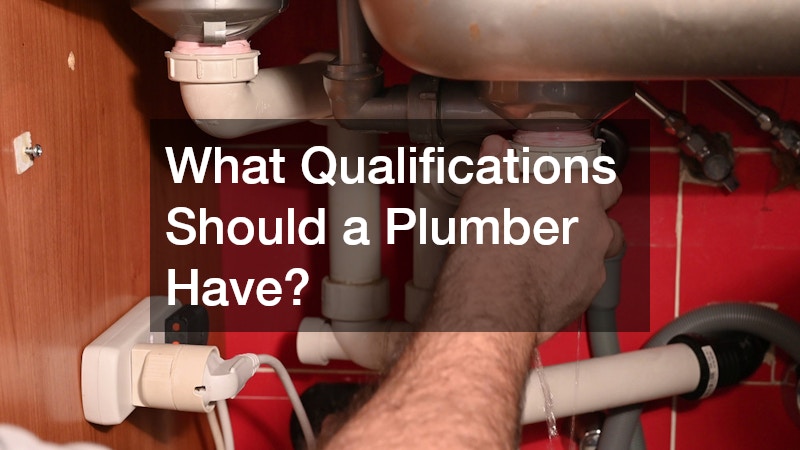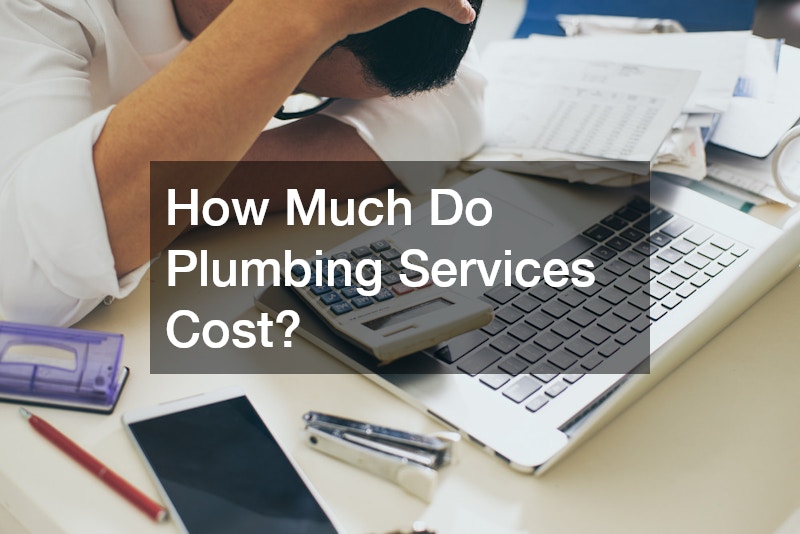Selecting the right plumber for your home projects is more than just finding someone who can fix a leak. Plumbing work affects the safety, efficiency, and value of your home, making it crucial to hire a professional who is experienced, trustworthy, and equipped with the right tools. Whether you are planning a kitchen remodel, installing new drainage pipes, or dealing with a sudden leak, understanding what makes a plumber reliable will save you time, money, and stress. From routine pipe cleaning and drain cleaning to more specialized services like mold remediation, a professional plumber can handle a wide range of household and commercial plumbing needs. Local plumbing service providers and local plumbing contractors often bring valuable expertise specific to your area, ensuring compliance with local regulations and quick response times. This guide will walk you through the key factors to consider when hiring a plumber, how to evaluate their qualifications, and what to ask during consultations, so you can make an informed choice that ensures quality work and peace of mind.
What Qualifications Should a Plumber Have?

Licenses and Certifications
One of the most critical indicators of a plumber’s reliability is their licensing and certifications. A licensed plumber has met state or regional requirements, demonstrating competency in areas such as pipe installation, flange fitting, and water system maintenance. Certifications can cover specialized skills like mold remediation or advanced drain cleaning techniques, signaling that the plumber is trained in both standard and complex plumbing scenarios. Hiring a plumber without proper credentials may lead to subpar work or violations of local building codes.
Insurance and bonding are essential protections for homeowners and contractors alike. Accidents happen, whether it’s a pipe burst during repair or water damage during installation, and an uninsured plumber could leave you financially responsible. Bonding offers further protection, guaranteeing compensation if a plumber fails to complete work or breaches contractual obligations. Reliable local plumbing contractors will carry both liability insurance and bonding, demonstrating their commitment to professional standards. Before hiring, ask for proof of coverage to protect your property and investment. Properly insured plumbers not only safeguard against unforeseen issues but also show a dedication to accountability, offering peace of mind that your drainage pipes, pipe cleaning, or flange fitting projects are handled responsibly.
How to Find a Reliable Plumber?
Online Reviews and Testimonials
In today’s digital age, online reviews are one of the most valuable tools for finding a dependable plumber. Platforms like Google, Yelp, and specialized plumbing directories provide insights into customer satisfaction, response times, and quality of work. Look for detailed reviews mentioning specific services, such as drain cleaning, local plumbing service, or mold remediation. Be wary of consistently overly positive reviews with no specifics, as they may be less trustworthy. Comparing multiple local plumbing contractors’ profiles helps identify consistent patterns of reliability and professionalism. Additionally, some plumbing supply stores maintain lists of verified professionals who purchase equipment through them, providing another resource for vetted recommendations.
Recommendations from Friends and Family
Word-of-mouth referrals remain one of the most reliable ways to find a plumber you can trust. Friends, neighbors, or family members who have recently dealt with plumbing issues can share their experiences with local plumbers, including how they handled routine maintenance, pipe cleaning, or emergency repairs. Personal recommendations often highlight aspects that online reviews may miss, such as punctuality, communication, and pricing transparency. Asking about projects similar to yours, like flange fitting or drainage pipe replacement, ensures the plumber has relevant experience. Combining recommendations from trusted sources with online research allows you to narrow down options and find a plumber well-suited to your home’s specific needs.
What Should You Ask During a Consultation?
Experience in Similar Projects
When consulting a potential plumber, inquire about their experience with projects similar to yours. Whether it’s routine drain cleaning, installing new drainage pipes, or complex mold remediation, a plumber with hands-on experience can anticipate challenges and offer efficient solutions. Local plumbing service providers often have unique insights into regional plumbing issues, water quality, and building codes, which can prevent costly mistakes. Ask about previous projects, including the type of materials used, techniques for pipe cleaning, or flange fitting, and request references if possible. A well-qualified plumber should be able to explain their approach clearly and provide examples of successful past work, giving you confidence in their ability to handle your home project.
Warranty and Guarantee Offers
Asking about warranties or guarantees is an essential step in evaluating a plumber’s reliability. A reputable plumber stands behind their work, offering guarantees on installations, pipe repairs, or drain cleaning services. Understanding the warranty terms protects you against recurring issues, such as leaks or improperly fitted drainage pipes. Some local plumbing contractors also provide extended support, including follow-up visits to ensure work quality. During consultation, request documentation detailing what is covered and for how long. A plumber willing to provide guarantees demonstrates professionalism and a commitment to long-term satisfaction, reducing the likelihood of post-service complications.
How Much Do Plumbing Services Cost?

Average Rates for Common Plumbing Jobs
Costs for plumbing services can vary widely depending on the type of work, the complexity of the project, and your location. Routine services like drain cleaning or pipe cleaning typically have standardized rates, while specialized work such as mold remediation or flange fitting may be priced higher. Local plumbers and plumbing contractors may offer package deals for maintenance or combined services, such as drainage pipe replacement alongside general plumbing inspection. Being aware of average rates helps you set realistic expectations and avoid overpaying for common services. Additionally, some plumbing supply stores provide installation services at competitive prices, giving homeowners flexible options for their projects.
Understanding Estimates and Invoices
Interpreting a plumbing estimate can be confusing without understanding the key elements. A comprehensive estimate should include labor costs, materials (like pipes or flange fittings), and potential additional fees. Ensure the plumber specifies whether the work involves drain cleaning, pipe replacement, or mold remediation. Local plumbing service providers often give itemized invoices, which allow you to compare pricing and verify that charges align with the scope of work. Before agreeing to any service, review the estimate thoroughly and ask questions about unclear items. Clear, transparent estimates are a hallmark of professional plumbers and help avoid disputes after the work is completed.
What Are Red Flags to Look Out For?
Lack of Written Estimates
One major warning sign when hiring a plumber is the absence of a written estimate. Verbal agreements can lead to misunderstandings about costs, materials, or scope of work, particularly for complex tasks like flange fitting or mold remediation. A written estimate ensures that both parties understand the expectations and provides a reference point if disputes arise. Local plumbing contractors and plumbing supply stores that provide itemized estimates demonstrate transparency and professionalism. Always request a detailed estimate before work begins to protect yourself from unexpected charges and ensure the project is handled responsibly.
Unprofessional Behavior or Appearance
Professionalism is often reflected in a plumber’s demeanor, punctuality, and appearance. Unprofessional behavior, such as arriving late, dressing inappropriately, or failing to communicate clearly, can indicate potential problems with the quality of work. Reliable plumbers take pride in their services, whether performing drain cleaning, pipe cleaning, or installing drainage pipes. Observing professionalism during initial consultations helps build trust and sets expectations for how the project will be managed. Local plumbers who maintain professional standards are more likely to provide high-quality results and adhere to safety regulations.
When to Consider Hiring an Emergency Plumber?
Identifying Emergency Plumbing Situations
Certain plumbing problems require immediate attention from a qualified plumber. Burst pipes, severe leaks, sewer backups, and sudden drainage issues are examples of emergencies that cannot wait. Local plumbing service providers often have rapid response teams equipped to handle urgent situations, including pipe cleaning or flange fitting repairs. Mold remediation may also be necessary if water damage occurs, as lingering moisture can lead to health hazards. Recognizing when a situation constitutes an emergency ensures that you contact the right professional promptly, preventing further property damage and costly repairs.
Costs Associated with Emergency Services
Emergency plumbing services typically come at a premium due to their urgency. After-hours calls, rapid response, and complex repairs like drainage pipe replacement or mold remediation may increase the total cost. Local plumbers and plumbing contractors often provide upfront pricing for emergency work, helping homeowners plan financially. Understanding potential charges, including labor, materials, and after-hours fees, prepares you for the investment required to protect your home. Comparing costs among local plumbing service providers ensures that you receive prompt, quality service without unnecessary overpayment.
What Technologies and Tools Should a Good Plumber Use?

Modern Equipment for Efficiency
A skilled plumber relies on modern tools and equipment to complete projects efficiently and safely. From advanced pipe cleaning machines to high-pressure drain cleaning systems, these tools allow plumbers to tackle issues like clogged drainage pipes, stubborn debris, and routine maintenance more quickly than traditional methods. Local plumbing service providers often invest in cutting-edge technology, including video inspection cameras to locate blockages, ensuring precise diagnosis and effective repair. Flange fitting tools and specialized equipment for mold remediation also improve the speed and accuracy of complex plumbing tasks. By choosing a plumber equipped with modern technology, homeowners can expect faster service, minimized disruption, and long-lasting results.
Technology in Diagnosis and Repair
Technological advancements have transformed the way plumbers diagnose and repair problems. Smart leak detection systems, pipe cameras, and digital monitoring tools enable local plumbing contractors to identify issues before they escalate, reducing the need for costly repairs. For example, detecting early signs of mold growth or drainage pipe corrosion allows timely intervention, preventing further damage. Software tools help plumbers manage service requests, track maintenance schedules, and provide detailed reports to clients.
What Types of Plumbing Services Are Offered?
Residential vs. Commercial Plumbing
Plumbing needs vary significantly between residential and commercial properties. Residential services often include drain cleaning, pipe cleaning, flange fitting, and general maintenance for kitchens, bathrooms, and basements. Commercial plumbing services may require larger-scale solutions, such as installing and maintaining complex drainage systems, handling mold remediation in office buildings, or supplying pipes for industrial applications. Local plumbers and plumbing supply stores can cater to both sectors, providing materials and expertise appropriate for each. Understanding the differences helps homeowners and business owners select a plumber whose experience matches the scope of their project.
Routine Maintenance and Repairs
Regular maintenance is key to preventing major plumbing issues. Scheduling routine inspections, pipe cleaning, and drain cleaning can extend the lifespan of drainage pipes, prevent leaks, and reduce the risk of mold problems. Local plumbing contractors often offer maintenance programs tailored to residential or commercial properties, ensuring consistent oversight of plumbing systems. Routine maintenance may include inspecting flange fittings, replacing worn components, and cleaning water lines.
How to Ensure Quality After-Service?
Follow-Up and Customer Support
A plumber’s commitment to quality extends beyond the completion of a job. Reputable local plumbers provide follow-up visits, check on the integrity of repairs, and address any lingering concerns. Customer support may include guidance on maintaining drainage pipes, tips for effective pipe cleaning, or scheduling future maintenance visits. Local plumbing service providers often establish clear communication channels for reporting issues or requesting additional services, ensuring that homeowners feel supported even after the work is finished. Effective follow-up demonstrates a plumber’s dedication to long-term service quality and customer satisfaction.
Feedback and Reviews After the Job
Providing feedback after a plumbing project benefits both homeowners and service providers. Honest reviews help future clients identify reliable local plumbers and local plumbing contractors, while giving the plumber valuable insights for improving service quality. Whether the work involved routine drain cleaning, pipe cleaning, flange fitting, or mold remediation, detailed reviews highlight strengths and identify areas for improvement. Plumbing supply stores and local contractors often encourage feedback as part of their commitment to transparency and professional growth. Sharing your experience ensures accountability and helps maintain a network of trustworthy plumbing professionals in your community.
How to Build a Long-Term Relationship with Your Plumber?

Importance of Trust and Dependability
Developing a long-term relationship with a trusted plumber offers numerous benefits. Reliable plumbers who understand your home’s plumbing system can provide faster service, anticipate recurring issues, and recommend preventive measures. Trust and dependability are particularly valuable for ongoing maintenance of drainage pipes, pipe cleaning, or routine mold remediation. Local plumbing service providers often prioritize building rapport with clients, fostering loyalty through consistent performance and transparent communication. A strong professional relationship ensures that when emergencies occur, you have a plumber who is familiar with your property and ready to act quickly and efficiently.
Discounts and Loyalty Programs
Many local plumbers and plumbing supply stores offer loyalty programs or discounts for repeat customers. Establishing a good relationship can lead to cost savings on routine maintenance, emergency services, or material purchases for projects like flange fitting or drainage pipe replacements. Loyalty programs may include priority scheduling, bundled service packages, or reduced rates for referrals. By consistently working with a trusted plumber, homeowners gain access to benefits that go beyond cost savings, including personalized service, faster response times, and expert recommendations. These programs reinforce the value of long-term collaboration, rewarding clients for choosing quality and reliability.
Choosing the right plumber is a critical decision that affects the safety, efficiency, and value of your home. From ensuring proper licensing and insurance to evaluating experience, modern tools, and follow-up support, the process requires careful consideration. Local plumbers and plumbing contractors bring expertise specific to your area, whether handling drain cleaning, pipe cleaning, flange fitting, or mold remediation. By reviewing online testimonials, seeking recommendations from friends and family, and asking the right questions during consultations, homeowners can identify professionals who deliver high-quality service. Understanding costs, emergency procedures, and service offerings further equips you to make informed decisions.


